Majdal
Dear Friends,
In the last postcard I introduced you to Haya (you can read about her here), and today I’d like to introduce you to another amazing person working at the Lavender Boutique Hotel, Majdal (مجدل).
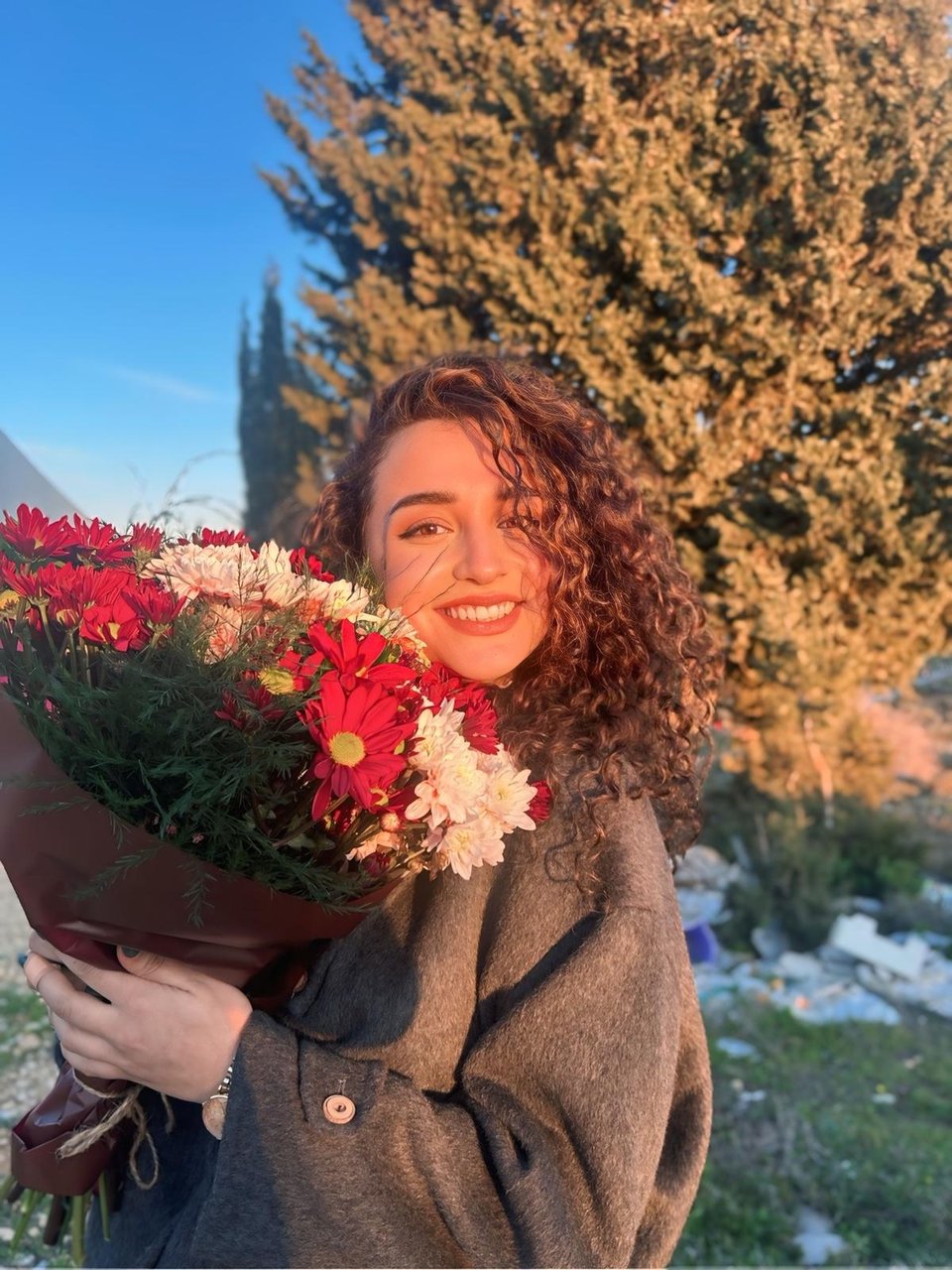
Majdal’s part-time work at the hotel is just one of several jobs that she currently holds. Majdal is 25, and she has been working since she was 19.
Majdal attended MUC, the Modern University College, and studied to be a pharmacist. But during the fieldwork/training hours she completed as part of her degree, she discovered that wasn’t a good fit. She graduated from MUC in 2021, with no commencement ceremony because of Covid 😟
During the lockdown, Majdal taught herself to play piano, with YouTube videos and a small keyboard that she found in her home. She also decided that she really wanted a cat, and in her words, “I follow what I feel.” She was drawn to an adorable black cat on a Facebook group of cats for sale; the cat was in the northern part of the West Bank, in the town of Tulkarem. Masked because of Covid, Majdal set out by bus, all on her own, to retrieve the cat, and - to the surprise of her family - returned with her beautiful Bella.
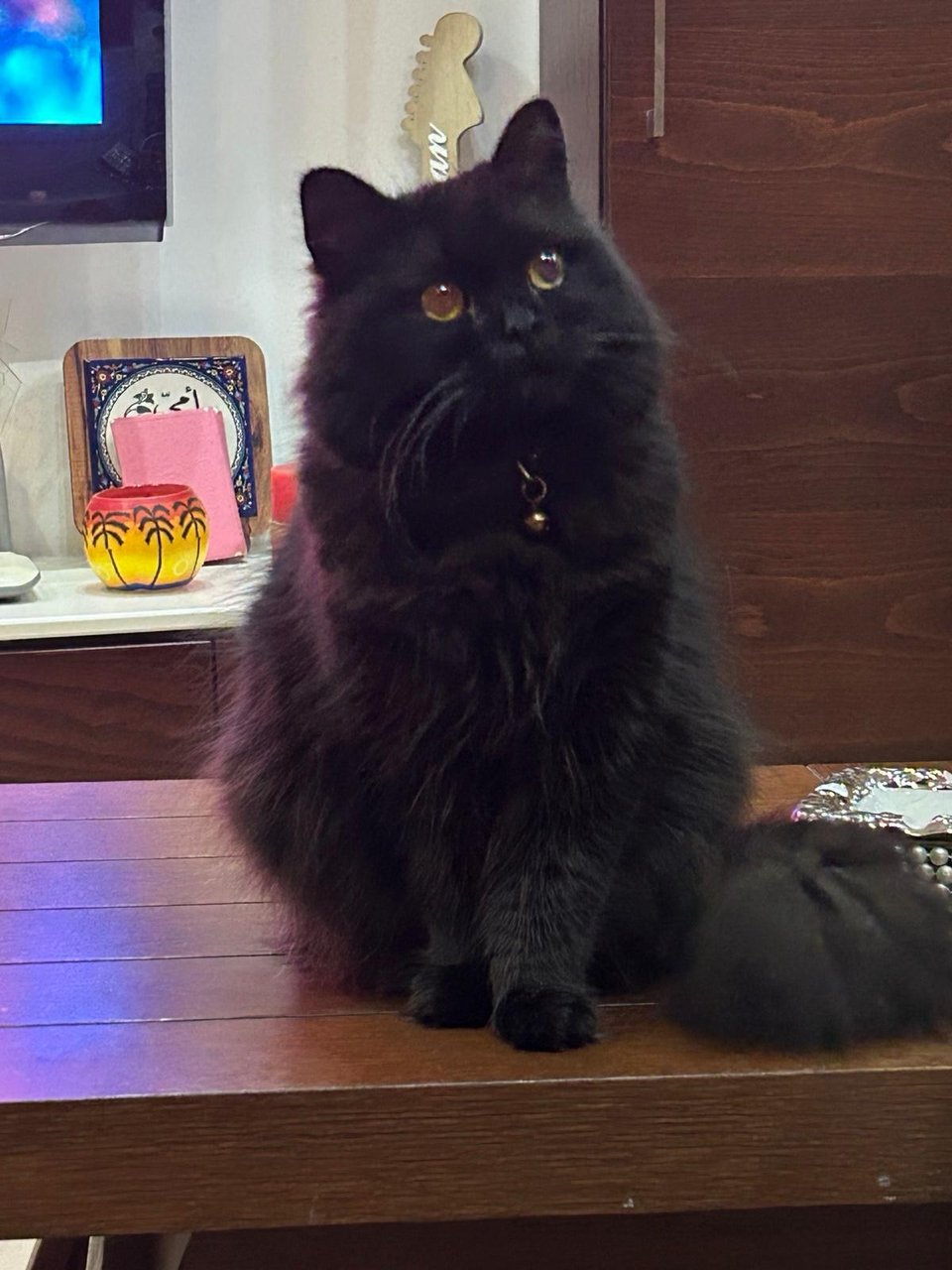
After two years, Bella was joined by Viola
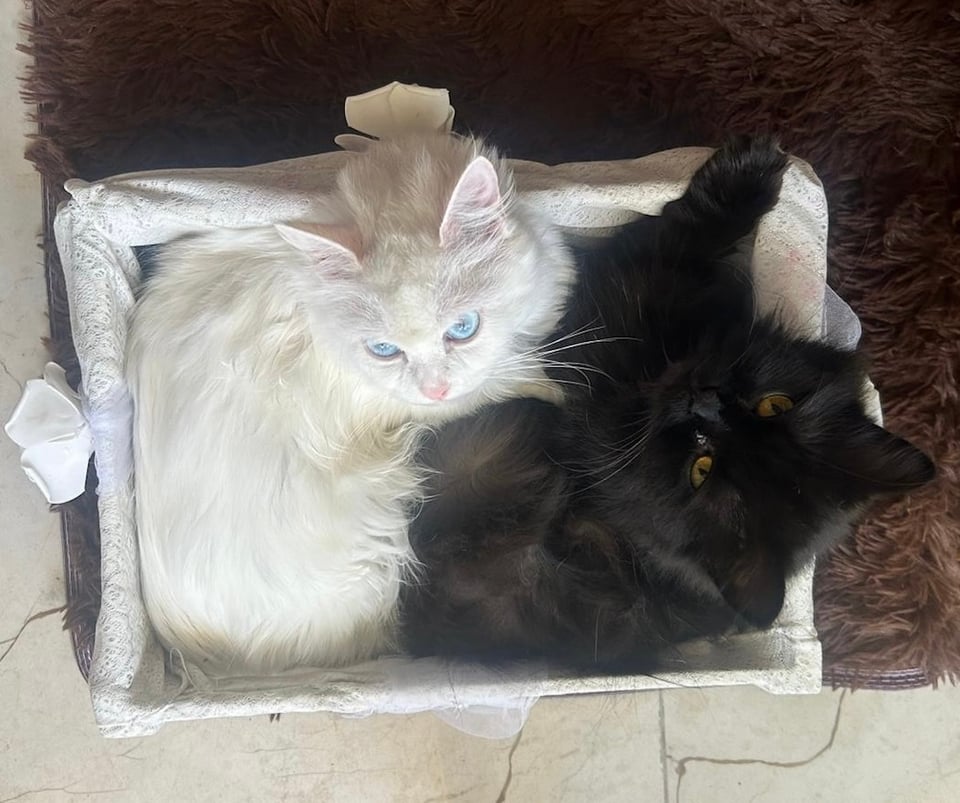
Majdal began working at the Lavender Hotel when it reopened after Covid, in May 2022. The hotel was busy with international and local visitors. But following October 7, 2023, guests canceled their stays, and the hotel was forced to close again. Without work and isolated at home once more, Majdal fell into a depression. After nearly a year, she decided to start going to the gym. Soon after that, she was offered a part-time job with a party planner.
In spite of the dangers for Palestinians who move around the West Bank, she traveled to weddings, graduations, and other celebrations in Bethlehem, Hebron, Nablus, Jenin, and other cities and villages. Because of the extensive web of Israeli military checkpoints across the West Bank, it was nearly impossible to determine how much time to allot for travel to these destinations. Following the Gaza ceasefire in January 2025, Israel increased the numbers of checkpoints across the West Bank. This includes what are called flying checkpoints and iron gates, temporary structures that can be erected at any time on roads and entrances to cities, towns, and villages. At last count, there were 898 checkpoints - in an area that is roughly the size of Delaware. The party staff always aims to get to their events 3 hours ahead of time - and sometimes they arrived just in time. For example, from Ramallah to Nablus used to take about half an hour; since October 7, the journey can take up to 3 hours.
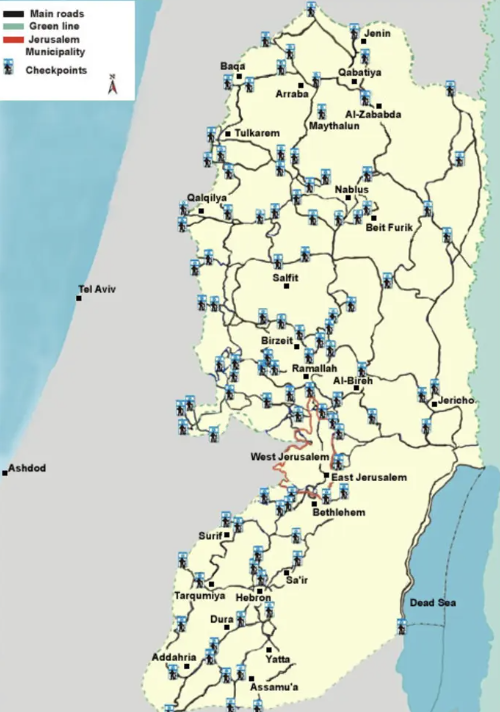
Soon after Majdal started working for the party planner, a friend recommended her for online work for a doctor’s office. In October 2024, Majdal got a job as a math teacher for 1st and 2nd grades. And the hotel re-opened in February of this year - just in time for my arrival.
Like most Palestinians, Majdal’s family’s origins are in land that is now part of Israel. The family is from Jaffa (about 40 miles from Ramallah), where her father’s sister still lives. Majdal has never been there. She has never been to Jerusalem - less than 15 miles from Ramallah. As a West Bank Palestinian, if Majdal wants to go to Jerusalem, or to Israel, or to the Mediterranean Sea, she has to apply for a permit from Israel. The process is a difficult one, and she hasn’t done it. She cannot drive on highways that are restricted to Israelis and Jerusalem residents.
Before the state of Israel was established, people moved freely across Palestine - from Ramallah, to Jerusalem, to Jaffa, to Tulkarem, to Jenin, to the Mediterranean Sea. Now, the West Bank has no coastline. The first time Majdal saw the sea was in 2018, when she was 18 years old and she went with her family to Sharm al Sheik Egypt. She has never been to the Mediterranean, even though it’s less than 40 miles from her home.
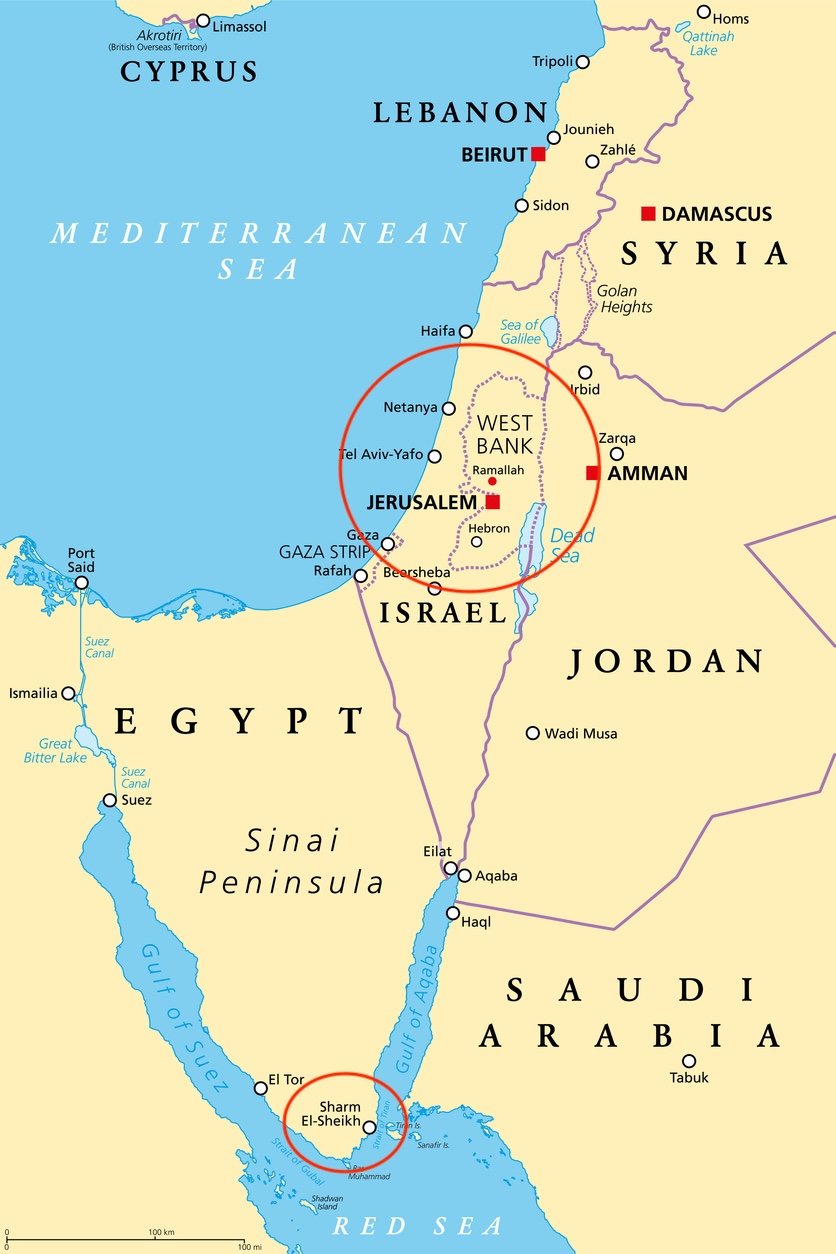
One day in October of last year, Majdal was dressed up for work, and she thought, “I wish I had someone to go out with”. So she googled websites to meet people. She found a website called Arab Buzz, and she found Tinder.

I was at first surprised that Tinder exists here, but then I realized it’s just an app that anyone can join from anywhere in the world! For those of you who don’t know about dating apps, they show you potential matches near your location.
A word about the matches on Tinder: Nearly 3 million Palestinians live in the West Bank. There are also about 700,000 Israelis living in illegal settlements here. Settlements are Israeli colonies that are built on Palestinian land in the West Bank. Some Israelis move to settlements because the Israeli government offers them financial incentives. Many settlers are driven by religious conviction that God promised this land to the Jews, and that all the land - from the river to the sea - should be Jewish. Israeli settlements are illegal, according to international law. Israel disputes this, and continues to build settlements large and small across the West Bank; some settlements have tens of thousands of residents.
So it turns out that most of the men that Majdal found on Tinder were Israelis from settlements in the West Bank. Majdal was not happy about matching with settlers, so she continued to set her search parameters to smaller and smaller distances - down to 1 kilometer. Frustrated, she eventually gave up and stopped looking at the app.
The following map shows illegal Israeli settlements in the West Bank. This is from 2024, meaning that even more settlements have appeared since then.
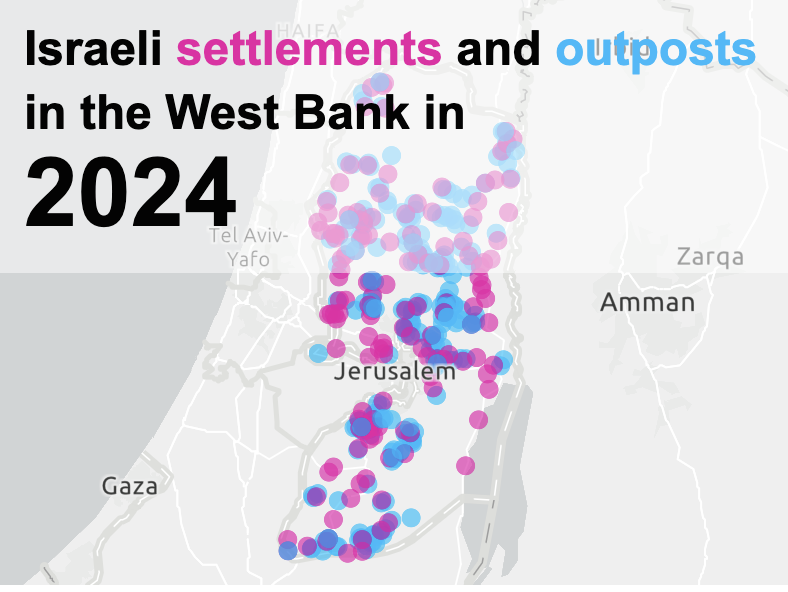
But, this Tinder story has a happy ending. A young man super-liked Majdal on Tinder - so she received a notification even without checking the app. They met, dated, and really liked each other. They first told their families they’d met at the gym, but now that they are officially engaged, with the blessings of both families, they don’t mind sharing the information about the way they really met.
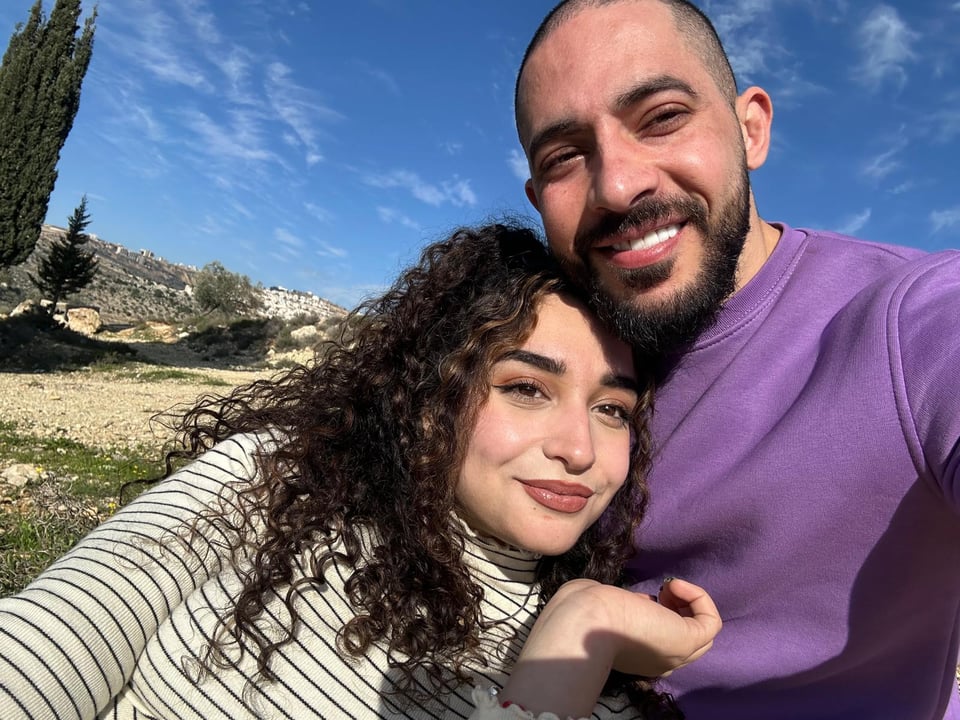
Thank you Majdal and Aboud for sharing these stories. And wishing you much happiness in your life together!
Salaam,
Nancy
MORE ABOUT SETTLEMENTS
Some settlements are small, but many are enormous, with more than 50,000 residents. Israeli settlers living in the West Bank are under the jurisdiction of Israeli civil law, and enjoy services provided by Israel. Palestinians living just next door are under military rule - checkpoints, curfews, detention without charge and other restrictions. The physical presence of settlements, settlers, checkpoints, and soldiers breaks up the West Bank into many disconnected areas. Palestinians must travel through militarized checkpoints to visit friends and family, even to go to their own land, sometimes to go to school, or even to get to a hospital.
The founding document of Israel’s Likud Party, formed in 1977, states that “between the sea and the Jordan there will be only Israeli sovereignty”. This is a great essay by Nadia Abu El Haj about the use and misuse of the phrase ‘from the river to the sea’.
The Israeli government has built over 120 miles of roads in the West Bank for the exclusive use of Israeli settlers (these are the roads Palestinians may not use). And settlers often throw rocks onto cars that drive on the roads for Palestinians. The Israeli human rights organization B’Tselem observes that settlements, and the violence from settlers, are "both forms of state violence: the Israeli apartheid regime and its representatives actively aid and abet the settlers’ violence as part of a strategy to cement the takeover of Palestinian land”.
This three-minute video from Visualizing Palestine offers an excellent overview of settlements.